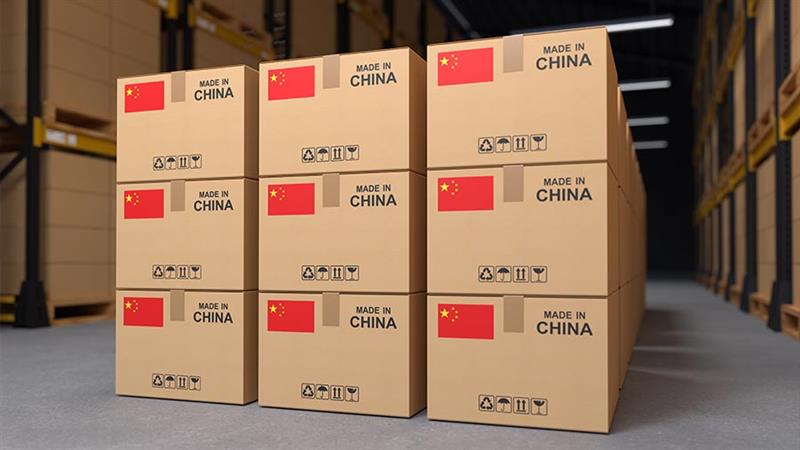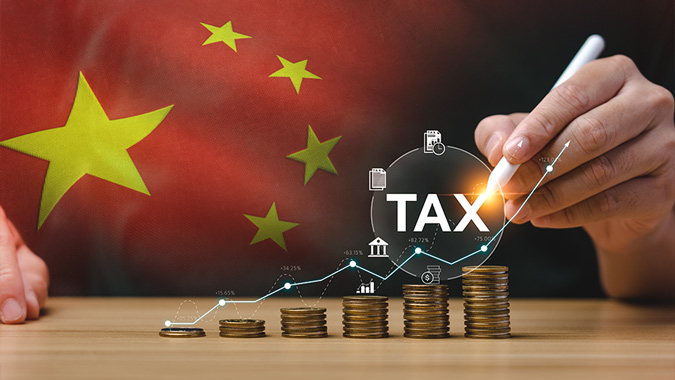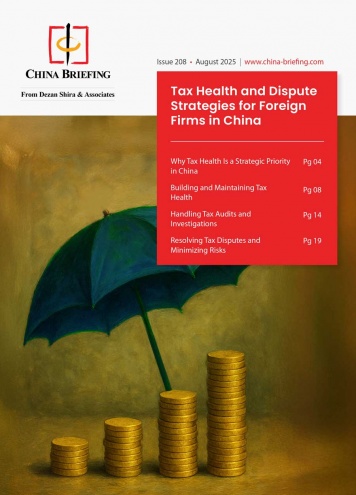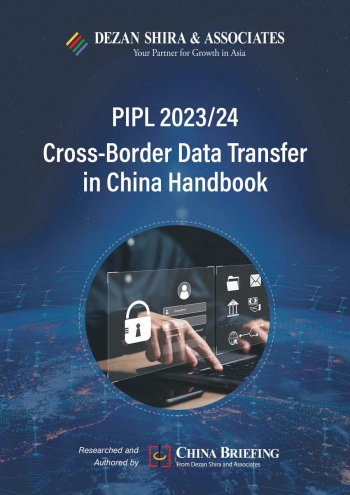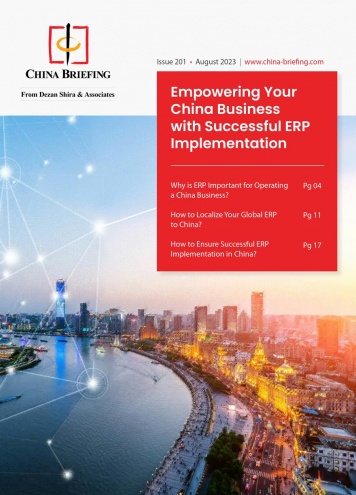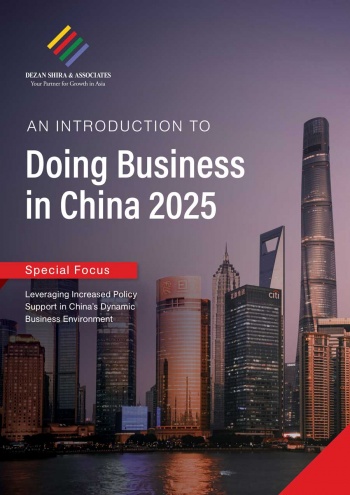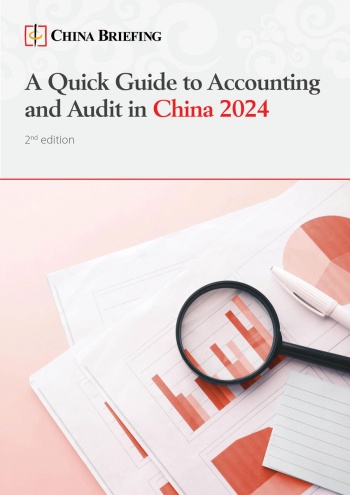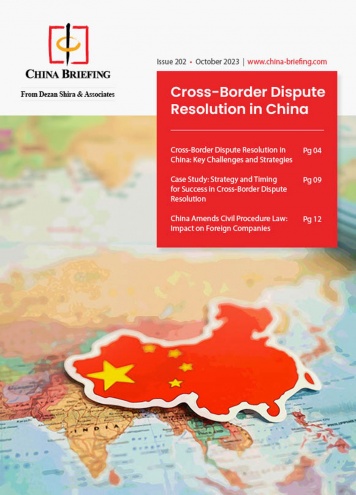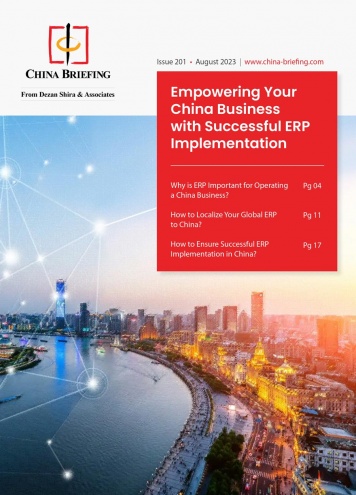-
Other Briefings
- Subscribe
New Procurement Rules Favor “Made in China” 一分钟极速赛车168官网 一六八移动端极速赛车全国开奖 幸运168官方飞艇结果体彩查询网: Strategic Takeaways for Businesses
China’s new government procurement policy introduces a 20 percent price evaluation advantage for qualifying domestic products and sets clearer standards for what counts as “Made in China.” This poses challenges for foreign businesses, especially those with offshore production, but also opens doors through clearer rules and fairer competition.
China Moves Toward Absolute Emissions Cap in Carbon Trading System
China is moving toward an absolute emissions cap in its national carbon trading system, signaling a major policy shift. The new directive aims to strengthen carbon pricing and accelerate decarbonization across key industries.
US-China Relations in the Trump 2.0 Era: A Timeline
This timeline was created on January 21, 2025, and was last updated on July 30, 2025. Most recently, Trump announces 100 percent tariffs on Chinese imports amid rising tensions, while China warns US of countermeasures.
2025 GBA IIT Subsidy in Guangzhou: Apply Before the October 20 Deadline
The 2025 GBA IIT subsidy application in Guangzhou is live. Find out how foreign talents can claim rebates before the October 20 deadline.
-
New Procurement Rules Favor “Made in China”: Strategic Takeaways for Businesses
Economy & Trade Oct 13 -
US-China Relations in the Trump 2.0 Era: A Timeline
Economy & Trade Oct 13 -
China Monthly Tax Brief: September 2025
Tax & Accounting Oct 13 -
A Guide to Minimum Wages in China (As of October 9, 2025)
Human Resources & Payroll Oct 09 -
Upcoming Deadline: Beneficial Ownership Filing Due November 1
Legal & Regulatory Oct 09
Get free access to our subscriptions and publications
Subscribe to receive weekly China Briefing news updates, our latest doing business publications, and access to our Asia archives.
Sign Up Now
Economy & Trade
New Procurement Rules Favor “Made in China”: Strategic Takeaways for Businesses
Oct 13China’s new government procurement policy introduces a 20 percent price evaluation advantage for qualifying domestic products and sets clearer standards for what counts as “Made in China.” This poses challenges for foreign businesses, especially those with offshore production, but also opens doors through clearer rules and fairer competition.
-
US-China Relations in the Trump 2.0 Era: A Timeline
Economy & Trade Oct 11This timeline was created on January 21, 2025, and was last updated on July 30, 2025. Most recently, Trump announces 100 percent tariffs on Chinese imports amid rising tensions, while China warns US of countermeasures.
-
EU-China Relations After the 2024 European Elections: A Timeline
Economy & Trade Oct 08Timeline tracking key developments affecting EU-China relations, including trade and business engagement, under the new European Parliament.
-
China’s Expanding FTA Network: Unlocking New Opportunities for Global Investors
Economy & Trade Oct 06China’s FTA framework is reshaping global trade and unlocking new opportunities for foreign investors. With 23 FTAs signed and a growing focus on digital and green sectors, China offers a strategic gateway to Asia and beyond.
-
Gulf Wealth Powers China’s 2025 Investment Boom: From Finance to Energy
Economy & Trade Sep 30Middle Eastern sovereign wealth funds are driving China’s 2025 investment surge, especially in finance, energy, and infrastructure. Policy reforms and China–GCC ties are accelerating deal flows and strategic cooperation.
Tax & Accounting
China Monthly Tax Brief: September 2025
Oct 10In this China Monthly Tax Brief for September 2025, China introduced new compliance rules for internet platforms, enhanced funding incentives for multinational headquarters in Shanghai, and rolled out targeted tax benefits in Hainan for talent and businesses. A new sustainability disclosure guide also provides a practical framework for ESG reporting, alongside other notable updates.
-
China Manufacturing Tracker 2025
Tax & Accounting Sep 24Our tracker provides continuous updates on key economic and growth indicators in China’s manufacturing industry. The data for July 2025 has now been updated.
-
Tax Health in China: A Strategic Imperative for 2025 and Beyond
Tax & Accounting Sep 23China’s evolving tax system is reshaping compliance for foreign firms. Learn why tax health is now a strategic priority amid fiscal pressure and digital oversight.
-
China’s Tax Overhaul Ends Third-Party Export Loophole—Are You Ready?
Tax & Accounting Sep 17China’s STA Announcement [2025] No.17 introduces sweeping changes to export tax filing, targeting non-compliant practices like third-party export document use. Learn how the new rules will affect your business and what steps you should take to prepare.
-
China Monthly Tax Brief: August 2025
Tax & Accounting Sep 05In this monthly China tax brief for August 2025, we spotlight significant taxation policies and measures for businesses.
Legal 168官网一分钟赛车开奖结果体彩 幸运赛车75秒全局走势计划预测 #极速赛车官方168一分钟网 & Regulatory
New Procurement Rules Favor “Made in China”: Strategic Takeaways for Businesses
Oct 13China’s new government procurement policy introduces a 20 percent price evaluation advantage for qualifying domestic products and sets clearer standards for what counts as “Made in China.” This poses challenges for foreign businesses, especially those with offshore production, but also opens doors through clearer rules and fairer competition.
-
Upcoming Deadline: Beneficial Ownership Filing Due November 1
Legal & Regulatory Oct 09With the final deadline of November 1, 2025 fast approaching, businesses that have not yet completed their Beneficial Ownership Information (BOI) filing should take immediate action to ensure compliance and avoid last-minute technical or documentation issues.
-
The “Negative Lists” Easing Data Export in China’s FTZs - A Complete Guide for Foreign Companies
Legal & Regulatory Oct 08China’s Free Trade Zones are reshaping the country’s data export policy through sectoral negative lists and trial measures. New national-level proposals aim to unify these pilots and ease compliance for multinational companies
-
Key Regulatory Developments in China’s F&B Sector: Implications for Industry Stakeholders
Legal & Regulatory Sep 29China’s food and beverage sector is undergoing major regulatory transformation in 2025. From dairy standards to digital labeling and health food approvals, the reforms signal a shift toward safety, transparency, and strategic market access.
-
Cybersecurity Incident Reporting Rules in Effect November 1 - Requirements for Foreign Companies in China
Legal & Regulatory Sep 25The new rules clarify how and when companies providing internet services must report cybersecurity incidents to authorities with varying degrees of urgency depending on the incident threat level.
Industries
China Moves Toward Absolute Emissions Cap in Carbon Trading System
Oct 02China is moving toward an absolute emissions cap in its national carbon trading system, signaling a major policy shift. The new directive aims to strengthen carbon pricing and accelerate decarbonization across key industries.
-
China Tech Cities on the Rise: AI and VC Opportunities for Global Investors
Industries Oct 01China’s leading tech cities are gaining global prominence in AI, biotech, and smart manufacturing. This article examines the investment implications for foreign firms navigating China’s evolving innovation landscape.
-
Key Regulatory Developments in China’s F&B Sector: Implications for Industry Stakeholders
Industries Sep 29China’s food and beverage sector is undergoing major regulatory transformation in 2025. From dairy standards to digital labeling and health food approvals, the reforms signal a shift toward safety, transparency, and strategic market access.
-
China Manufacturing Tracker 2025
Industries Sep 24Our tracker provides continuous updates on key economic and growth indicators in China’s manufacturing industry. The data for July 2025 has now been updated.
-
Can China’s Sports and Fitness Industry Drive New Consumption?
Industries Sep 15As interest in sports and fitness grows across China, the government is harnessing the industry's potential as a driver of new domestic consumption. We look at the latest trends, policy initiatives, and investment opportunities in the burgeoning sector.
HR & Payroll
A Guide to Minimum Wages in China (As of October 9, 2025)
Oct 09This article offers a guide to minimum wages in the Chinese Mainland and discuss how labor costs are affected by changes to the minimum wage levels. The data is current as of October 9, 2025.
-
China Port Visa Explained: Who Needs it and How it Compares to Visa-Free Entry
HR & Payroll Oct 07China’s Port Visa offers a flexible entry option for foreign nationals with urgent travel needs who cannot obtain a visa in advance and are ineligible for China’s visa-free entry schemes. Learn how it works, who qualifies, and how it compares to other entry options.
-
China’s Demographic Trends by Province and City: An Investor’s Analysis
HR & Payroll Oct 03China’s demographic shifts show widening regional disparities and long-term structural challenges. This article explores how these trends impact investment decisions across provinces and major cities.
-
Why a Global Mindset is Critical for Business Success in China
HR & Payroll Sep 26In this article, we explore how cultivating a global mindset helps leaders navigate China’s unique cultural dynamics, build trust-based relationships, and unlock long-term business growth in a complex and fast-evolving market.
-
Who’s the Employer? Managing Risks in Intra-Group and Mixed Employment Scenarios
HR & Payroll Sep 24Mixed employment can expose affiliated companies to joint legal responsibilities in China. This guide helps foreign invested enterprises understand the risks and implement effective compliance measures.
Technology
The “Negative Lists” Easing Data Export in China’s FTZs - A Complete Guide for Foreign Companies
Oct 08China’s Free Trade Zones are reshaping the country’s data export policy through sectoral negative lists and trial measures. New national-level proposals aim to unify these pilots and ease compliance for multinational companies
-
EU-China Relations After the 2024 European Elections: A Timeline
Technology Oct 08Timeline tracking key developments affecting EU-China relations, including trade and business engagement, under the new European Parliament.
-
Cybersecurity Incident Reporting Rules in Effect November 1 - Requirements for Foreign Companies in China
Technology Sep 25The new rules clarify how and when companies providing internet services must report cybersecurity incidents to authorities with varying degrees of urgency depending on the incident threat level.
-
New Guidelines on Handling Sensitive Personal Data in China in Effect November 1
Technology Sep 11New nonmandatory standards provide useful clarity on how to legally process senstive personal data throughout the entire lifecycle, facilitating compliance with regulations.
-
Understanding China’s AI + Manufacturing Roadmap: Implications for FIEs
Technology Aug 27China’s AI + Manufacturing initiative is transforming production across sectors, enabling flexible, data-driven, and precision operations.
Expert Guidance about Business in Asia
Dezan Shira & Associates is a pan-Asia, multi-disciplinary professional services firm, providing market entry, legal, accounting, tax, HR, technology and operational advisory to international investors.
Business Updates 一分钟极速赛车官方开奖网站 极速赛车一分钟开奖结果 168极速一分钟赛车记录走势查询 for All Asia Markets
Asia Briefing publishes articles, magazines, and guides on doing business in Asia. Dezan Shira & Associates has produced the publication since 1999.
Need More Guidance?
China Briefing Publications
Download magazines and guides on doing business in China.
Download Now